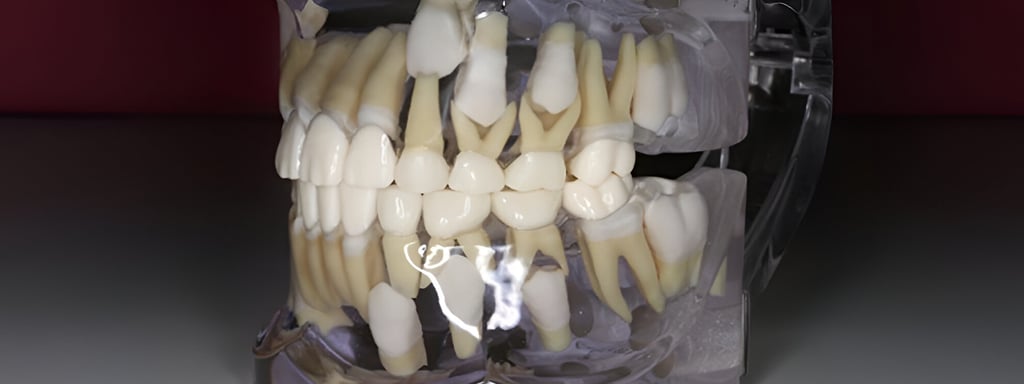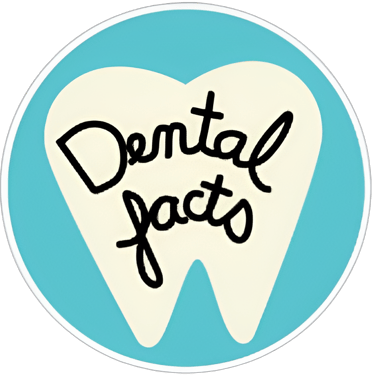Why Do Humans Have Two Sets of Teeth?
Humans have two sets of teeth: baby teeth (primary teeth) and permanent teeth. Baby teeth guide the position of the adult teeth and play a key role in chewing, speech, and facial development. It’s important to care for them with good hygiene and regular dental visits to ensure a healthy smile in the future.
Humans have two sets of teeth: baby teeth (primary teeth) and permanent teeth. Baby teeth guide the position of the adult teeth and play a key role in chewing, speech, and facial development. It’s important to care for them with good hygiene and regular dental visits to ensure a healthy smile in the future.
1/11/2024・3 min read




Baby teeth are the first to appear in childhood, usually around 6 months of age. These teeth are smaller and fewer in number compared to permanent teeth—there are only 20 baby teeth versus 32 permanent teeth.
The main function of baby teeth is to serve as guides for the permanent teeth that will come in later. As baby teeth grow and develop, they help maintain the proper space for the adult teeth forming beneath the gums. This ensures that permanent teeth erupt in the correct and healthy position.
Over time, baby teeth naturally loosen and fall out. This process usually begins around age 6 and continues until about age 12. As the baby teeth fall out, the permanent teeth emerge to take their place.
The transition from baby teeth to permanent teeth is a natural and essential part of healthy dental development. However, it’s important to care for and maintain baby teeth during their time in the mouth. Even though they are temporary, baby teeth play a crucial role in chewing, speech, and the development of the jawbone and facial structure.
Proper care for baby teeth includes regular brushing, flossing, and routine dental checkups. These practices help prevent cavities and other oral health issues, which in turn support the healthy development of permanent teeth.
In summary, humans have two sets of teeth: baby teeth and permanent teeth. Baby teeth are essential because they act as guides for permanent teeth to grow into the correct position. Although these teeth naturally fall out, caring for them properly is important to ensure healthy oral development. Daily brushing, flossing, and regular dental visits are key habits for maintaining good oral health throughout life.




Baby teeth are the first to appear in childhood, usually around 6 months of age. These teeth are smaller and fewer in number compared to permanent teeth—there are only 20 baby teeth versus 32 permanent teeth.
The main function of baby teeth is to serve as guides for the permanent teeth that will come in later. As baby teeth grow and develop, they help maintain the proper space for the adult teeth forming beneath the gums. This ensures that permanent teeth erupt in the correct and healthy position.
Over time, baby teeth naturally loosen and fall out. This process usually begins around age 6 and continues until about age 12. As the baby teeth fall out, the permanent teeth emerge to take their place.
The transition from baby teeth to permanent teeth is a natural and essential part of healthy dental development. However, it’s important to care for and maintain baby teeth during their time in the mouth. Even though they are temporary, baby teeth play a crucial role in chewing, speech, and the development of the jawbone and facial structure.
Proper care for baby teeth includes regular brushing, flossing, and routine dental checkups. These practices help prevent cavities and other oral health issues, which in turn support the healthy development of permanent teeth.
In summary, humans have two sets of teeth: baby teeth and permanent teeth. Baby teeth are essential because they act as guides for permanent teeth to grow into the correct position. Although these teeth naturally fall out, caring for them properly is important to ensure healthy oral development. Daily brushing, flossing, and regular dental visits are key habits for maintaining good oral health throughout life.



